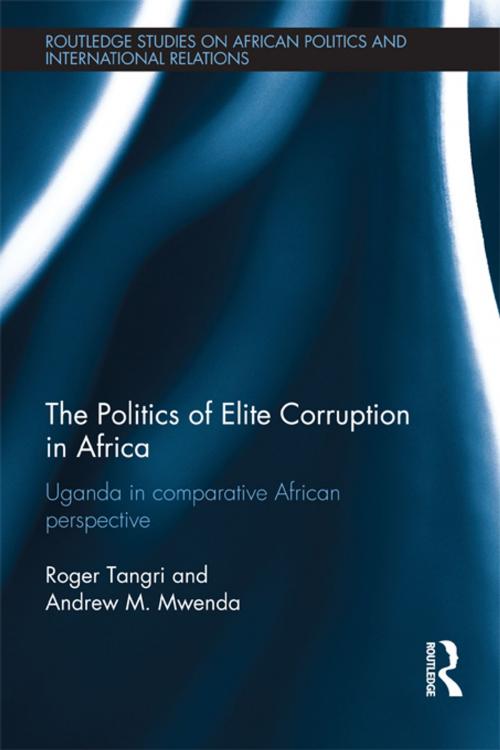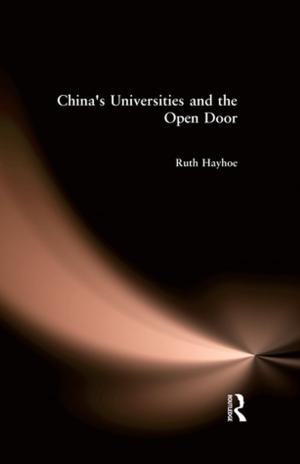The Politics of Elite Corruption in Africa
Uganda in Comparative African Perspective
Nonfiction, Social & Cultural Studies, Political Science| Author: | Roger Tangri, Andrew M Mwenda | ISBN: | 9781135047740 |
| Publisher: | Taylor and Francis | Publication: | August 21, 2013 |
| Imprint: | Routledge | Language: | English |
| Author: | Roger Tangri, Andrew M Mwenda |
| ISBN: | 9781135047740 |
| Publisher: | Taylor and Francis |
| Publication: | August 21, 2013 |
| Imprint: | Routledge |
| Language: | English |
This book considers the causes of high-level state corruption as well as the political constraints of countering corruption in Africa. It examines elite corruption in government as well as in the political and military spheres of state activity, and focuses on illegal behaviour on the part of state and non-state actors in decision-making.
Situating corruption and anti-corruption within a political framework, this book analyses the motivations, opportunities and relative autonomy of state elites to manipulate state decision-making for personal and political ends. Based on detailed case studies in Uganda, the authors focus on corruption in the privatization process, military procurement, foreign business bribery, illegal political funding, and electoral malpractice. The book examines why anti-corruption institutions and international donors have been constrained in confronting this executive abuse of power, and discusses the wider relevance of Uganda’s experience for understanding elite corruption and anti-corruption efforts in other African countries.
The Politics of Elite Corruption in Africa will be of interest to students and scholars of African politics, African political economy, development studies, corruption and government.
This book considers the causes of high-level state corruption as well as the political constraints of countering corruption in Africa. It examines elite corruption in government as well as in the political and military spheres of state activity, and focuses on illegal behaviour on the part of state and non-state actors in decision-making.
Situating corruption and anti-corruption within a political framework, this book analyses the motivations, opportunities and relative autonomy of state elites to manipulate state decision-making for personal and political ends. Based on detailed case studies in Uganda, the authors focus on corruption in the privatization process, military procurement, foreign business bribery, illegal political funding, and electoral malpractice. The book examines why anti-corruption institutions and international donors have been constrained in confronting this executive abuse of power, and discusses the wider relevance of Uganda’s experience for understanding elite corruption and anti-corruption efforts in other African countries.
The Politics of Elite Corruption in Africa will be of interest to students and scholars of African politics, African political economy, development studies, corruption and government.















